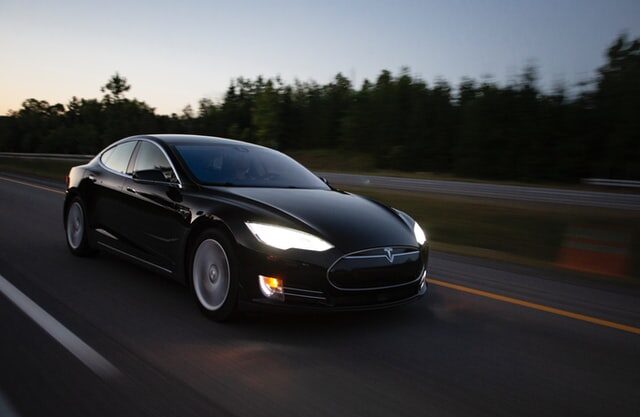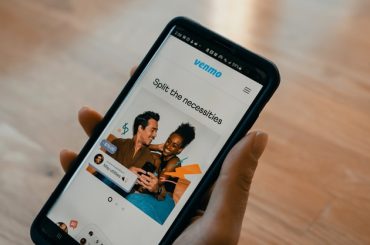Vikram Chopra is widely known as the spark that completely revolutionized the used cars industry in India. Tackling trust issues that lay at the foundation of buying and selling big-ticket items and building a super smooth consumer interface to create an aspiration experience, Vikram has built a truly unique business.
Having built his interest in technology from IIT Bombay and sharpening his skills at McKinsey and Sequoia Capital, Vikram exited his first start-up Fabfurnish, before launching CARS24.
In conversation with The Strategy Story, Vikram has shared everything starting from consumer technology to core business model of CARS24
The Strategy Story: What was your motivation behind CARS24? What were the problems that you felt consumers were facing that led you to start CARS24?
Vikram Chopra: Thanks, The Strategy Story for having me here. It is improbable that anybody who has bought or sold a car in India, or around the world will say that they have had a good experience. Even if they have not personally purchased or sold a car, they have family and friends who have experienced this, which is usually a bad experience.
Many years ago, I was looking to buy a car, and the budget that I had was appropriate for a used car. The challenge was that I could not figure out how good the quality of used cars was, and the second but more important thing was that I could not get financing for the car. I ended up buying a new car because I needed to make only a 10% down payment, while for a used car, I would have needed to make a 100% payment.
Even if the used car was half the price of the new car, it was easier to buy a new car from a cash flow perspective. The entire experience to me made no sense because there would have been hundreds of people like me who would like to buy a used car, but these challenges would have prevented them.
On the sellers’ side, there were challenges too. When I was selling my car, I had a challenging experience. I had imagined that selling would be an easy task, but that was not the case. These two experiences stayed with me, and I always wondered what could be done to solve these.
In my experience, before you solve for demand, you need to solve for supply. Because unless you solve for supply, there is no point in creating the demand because you cannot serve it. We realized that many categories in India are supply-constrained, and we wondered what all types of businesses this learning applies to. This took me back to my experience of buying a suitable used car.
We had an insight that we have first to help consumers buy a new car to help them sell a car. Because once you help them sell a used car, you can create a supply of cars that other consumers can buy. We figured that to build a used car business that creates a 100X better consumer experience, we need to focus only on supply, and this is what we concentrated on for the first 70% of our existence.
The Strategy Story: In 2015, when you were starting, it was thought that a car is an expensive item, and consumers need to touch and feel it before deciding to purchase it physically. So how did you work to earn the trust of consumers on an online platform?
Vikram Chopra: E-commerce companies solved this problem a few years ago by allowing consumers to pay after receiving the product. We applied this learning to used cars. So you could buy a used car online, and only after you see it at your doorstep can you decide to make the payment.
This is such a superior experience versus off-line because you can look at thousands of cars online; while in a showroom, you will see a maximum of 100-150 cars. The choices are immense online, and the likelihood of finding one that you like is higher online. For big-ticket expenses like cars, you would want to buy something that you like and not settle.
The second nuance is that there is no pressure on you like it is at a showroom. You don’t have to worry that the showroom owner will not let you test drive beyond ten minutes, or the salesman will pressurize you. You can test drive the car for two hours if you like. You can show the car to anyone you like, your friends, your family, anyone. This ends up being a 100X experience for a consumer versus going to a showroom. Our consumers tell us that they prefer this because they get a much larger variety and get a much better touch and feel experience.
The Strategy Story: Can you elaborate a bit on the CARS24 business model and how you are leveraging technology to advance the model
Vikram Chopra: CARS24 business model is straightforward. A seller wants the best price for his car and wants it sold quickly. The buyer wants a good quality car at the lowest prices with easy financing for the car. To make both sides happy, CARS24 focused on an end-to-end platform sans geography and the challenges of localized selling.
In our case, when you come to CARS24, you sell to CARS24, and it is our problem to figure out a suitable buyer while making sure that you get the right price. The whole transaction happens in under one hour, and it is an end-to-end eCommerce experience for both the buyer and seller. The process is very similar to buying or selling anything on Amazon, and you don’t have to negotiate the price, worry about the quality, or pay upfront. We handle that when we purchase the car, and it is our job to take the hassle out of the process.
Sometimes people confuse our online platform with online classifieds. But CARS24’s business model is very different. Classifieds connect you to people in the same locality, restricting buyers and sellers pools and limiting the ability to have a win-win for both sides. Local selling will leave either a buyer or the seller unhappy because the pool of options is limited to the specific locality. Both sides have to deal with the hassle of negotiating prices and ensuring quality.
The Strategy Story: How are you leveraging technology & big data in the CARS24 business model?
Vikram Chopra: Data science plays a critical role in the success of CARS24. Correct pricing and quality assurance post-inspection are essential levers to CARS24. Human beings do not make these decisions, but a fully automated setup does. Pricing is based on data, not on human knowledge, and for inspecting cars, we have in-house proprietary car inspection apps that leverage AI to identify issues.
For the consumer, the entire experience is online via a robust user interface and personalized experiences. Data Science plays a critical role in ensuring this experience.
The Strategy Story: You have recently expanded into international markets, including UAE and Australia? Is this going to be a key growth strategy for you?
Vikram Chopra: Used car buying and selling is a global problem. We are fortunate that we are trying to resolve a pretty much universal pain point. We are sure that a CARS24 equivalent will get built in every country and hence, why should it not be us. We used this simple idea of a common problem statement to expand into other markets.
The Strategy Story: You are a unicorn startup, and there would be a lot of marketing and growth strategies that you have worked on to reach here. Can you elaborate on these?
Vikram Chopra: Our north star strategy is to give a 100X better experience to both the buyer and the seller compared to what they have experienced so far. With us, you can sell your car in one hour while you might need up to four weeks if you try to do this locally. There is no hassle of negotiation and no challenges in paperwork. There are thousands of cars across budgets for the buyer, and the consumer is spoilt for choices, which again creates a 100X better consumer experience.
CARS24 strategy is to leverage mass media to get the word out and build awareness about the smooth buying and selling experience at CARS24.
The Strategy Story: People have a powerful and emotional connection with their cars. Do you build any of this into your communication strategy?
Vikram Chopra: If you look at our category and our consumer, the most critical aspect is trust. There is a lot of mistrust based on historical experiences of unorganized buying and selling. Hence, we constantly try to reinforce to consumers that the CARS24 experience is very smooth and hassle-free. These are high-quality cars and if you still don’t like the car you can return it in 7 days, no questions asked. The idea is to focus on functionality and grow the trust of consumers.
The Strategy Story: Can you share any numbers in terms of car sales, value amounts, geographic skews, etc.?
Vikram Chopra: We sell nearly 20,000 cars every month, about 250K in a year. This is just shy of a billion dollars worth of cars now. We are now present across over 200 cities in India with a 7000 strong workforce.
The Strategy Story: What is the long-term path to profitability in CARS24 Business Model?
Vikram Chopra: This is inherently a good margin category. You can make decent margins not just on the car transactions but also across other aspects of the value chain, including financing, servicing, and insurance. There are several ways to build profitability, and for every car that we buy or sell, we make money. From our perspective, we are in a growth phase right now, and we need to invest heavily in data science and brand building. This is essentially a capital expenditure but will fuel future growth.
The Strategy Story: What is your advice for budding entrepreneurs?
Vikram Chopra: The most important thing for any business is that you are solving a real problem and doing it in a way that is significantly superior to what consumers have experienced previously. If you can deliver this, consumers will reward you with their money, and business economics will work out. We believe in working backward from consumers, and that is the most crucial part.
Also, check out our most loved stories below

Why did Michelin, a tire company, decide to rate restaurants?
Is ‘Michelin Star’ by the same Michelin that sells tires, yes, it is! But Why? How a tire company evaluations became most coveted in the culinary industry?

Starbucks prices products on value not cost. Why?
In value-based pricing, products are price based on the perceived value instead of cost. Starbucks has mastered the art of value-based pricing. How?

Nike doesn’t sell shoes. It sells an idea!!
Nike has built one of the most powerful brands in the world through its benefit-based marketing strategy. What is this strategy and how Nike has used it?

Domino’s is not a pizza delivery company. What is it then?
How one step towards digital transformation completely changed the brand perception of Domino’s from a pizza delivery company to a technology company?

Why does Tesla’s Zero Dollar Budget Marketing Strategy work?
Touted as the most valuable car company in the world, Tesla firmly sticks to its zero dollar marketing. Then what is Tesla’s marketing strategy?



















